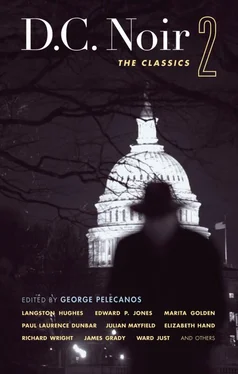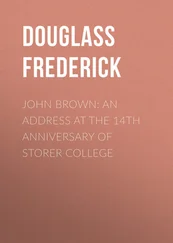Then Barnes reads Carson the Advise of Rights form: You have the right to remain silent. Anything you say can and will be used against you . Carson is now a cop who has been Mirandized. He signs the form.
“Don’t people know when you say ‘Drop what you’re holding,’ we mean drop what you’re holding?” Colin murmurs irritably as he places the form before Carson to sign.
The Discharge of Firearms report asks everything from the type of weapon used in the incident to how much sleep Carson had in the last twenty-four hours. The single eight-line paragraph that Frey tutors him on will be used for a press release that the Office of Communications will send to the media.
Carson agonizes over the brief paragraph, which contains the sketchiest rendering of the event even as it answers the primary who, what, when, where. The only question left unanswered is why. Carson hands Barnes the form studded with erasures, damp with sweat, the cursive script small and tortured.
“You been given a replacement weapon?” Barnes asks.
“No, not yet.”
The gun used in the shooting is now evidence. He can’t leave CID without a gun. On administrative leave, he is still a police officer. Still expected to protect and serve if he sees a “situation,” while gassing up his car or shopping for a new pair of shoes. He’s got to have a gun. He could be on some thug’s kill list. Maybe he’s got enemies he doesn’t even know about among all the people he’s arrested and helped send to jail. He’s responsible for his life. The lives of others. And his Beretta gives him all the authority he needs. The one or two times he’s left home without his weapon he’s felt naked, like a moving target. His Beretta is a strap-on body part. He wants a gun but can’t imagine holding it without remembering how he held it moments before the shooting, with focused, unfamiliar horror and dread. If he had to fire his weapon again he is not sure that he could.
Matthew Frey waits with Carson for Derek Stinson, the armorer who provides officers with new weapons. Stinson, a small, monklike man who like Matthew Frey was awakened from sleep, arrives carrying the metal case that is with him at all times. He’s an ex-cop who keeps a collection of guns in his St. Mary’s County home.
Stinson places the metal case on the same desk that Carson used to sign the Miranda forms and to write the report of the shooting. The four guns lie in the case embedded in foam, with magazines for each gun. Stinson gently lifts the Beretta and a magazine from the hold of the foam and offers them to Carson. Carson holds them in his dry, ashen palms with a reverence that stills the moment. Derek Stinson tells him, “In situations like the one you were in tonight, this is your only friend.”
After Carson has put the new Beretta in his holster he tells Stinson, “I’d never fired my weapon at a suspect before. I never wanted to have to do it, but still I wondered what it would be like. Now I’d give anything not to know.”
At 5:30 a.m., Carson unlocks the door to his house, weak with the desire to see the faces of his children. It is a desire that fills him like hunger. Like thirst. He walks quietly in the dark to his twin daughters’ room, which he painted pink for their birthday. The night-light plugged into the wall socket casts an eerie frosting of muted half-light over the room’s darkness. Barbie posters claim nearly all the space on the walls. Stuffed teddy bears, dolls, and Beanie Babies are scattered all over the carpeted floor. Standing in the doorway, Carson is stunned by the cheeriness of the room and it nearly buckles his knees, nearly sends him crashing onto the floor, but he steadies himself and walks to the bed of Roseanne, lying on her side, sucking her thumb reflexively in her sleep, her body curled, snail-like, beneath the sheet. Carson wipes the tiny beads of sweat from her forehead with his fingertips. Leaning closer, he listens to the heavy grunt of her breathing. He closes his eyes and allows that sound, the slightly asthmatic, ragged breathing of his daughter, to drench him like rain.
After a few moments Carson pads softly over to Roslyn’s bed. She is sprawled on her back, arms and legs akimbo. A gentle fluttering of her eyes behind her closed lids makes it seem as though she’s merely feigning sleep. Roslyn’s left leg twitches several times and she turns on her side.
In Juwan’s room, the boy sleeps too, a copy of Treasure Island tucked beneath his pillow. Carson stares at the face slack with sleep. He looks deeply into the face of a son that he is sure, even before this night, he has already lost.
Carson stands outside Juwan’s door and considers the steps he will have to take to enter the room where his wife, Bunny, sleeps. The thought of those steps fills his mind like a forced march. Bunny wakes up at 7:00 a.m. Maybe, just maybe, he will have a reprieve until then. He knows he won’t be that lucky but walks back downstairs anyway, slumping into a chair at the breakfast nook in the kitchen. He is more than tired, feels an ache that is primordial and awful in his bones and in his skin. He’d like to make a cup of coffee but doesn’t want to make any movements that would signal that he is home. There have been other times in his twelve years on the force when he was hours late because of a fatal accident. Sometimes he had a chance to call. Sometimes he didn’t. Bunny knew this was part of The Job. Shit happened. So she would have guessed, Carson convinces himself, that shit happened last night. To someone else.
If he can just be alone for a while. So that he doesn’t have to face Bunny, to tell her what he did. Even if alone means having nothing and no one to distract him from the images and the memories of the shooting playing over and over in his head. A videotape that on the ride home he promised that he would only allow to play for fifteen minutes of every hour, a promise he has absolutely no power to keep.
The clock on the kitchen wall ticks in all this silence, too loudly, and when he finally switches on the kitchen light to see that he has been sitting in the breakfast nook for half an hour, Carson hears Bunny coming down the stairs. She stands in the kitchen doorway, bundled in a terry-cloth robe, her hair in rollers.
“I couldn’t sleep. I haven’t been able to sleep all night,” she complains, yawning and walking over to the table. “What’s wrong? Why are you so late?” she asks sleepily. “Why are you sitting down here? Why didn’t you come to bed?”
“I know I should’ve called,” he begins.
“I was worried … I started to call the station,” Bunny whines.
“I’m sorry.”
“Carson, sorry just doesn’t cut it. You don’t seem like yourself. You look strange, Carson, what’s wrong?” she asks, sitting down heavily beside him.
He thinks he will tell her calmly, slowly. Instead, the words speak themselves, stumble out. “I’d given him the ticket. The stop was over. I was on my way home.”
“Carson?” Bunny asks, saying his name like a question, and to Carson his name sounds as odd as the inquiry he has heard, it seems, a thousand times this night, Are you okay?
“It was dark. Hell, I didn’t know. How could I? All he had to do was drop what he was holding. Like I told him. Then I would’ve known.”
“Carson, you’re scaring me.”
“It happened so fast.” And that is the truest thing Carson has thought or said this night. “It happened so fast. I killed a man. I stopped him because he was speeding and driving with no headlights.”
“And you killed him?” Bunny whispers, rising so quickly she nearly falls, clutching the collar of her robe tight at her throat and covering her mouth with her hand. Carson stands and walks to Bunny as if he could protect her, save her, from the wrath of what he has done. They cling to each other. Never before have they held each other with love so total and so blind.
Читать дальше











